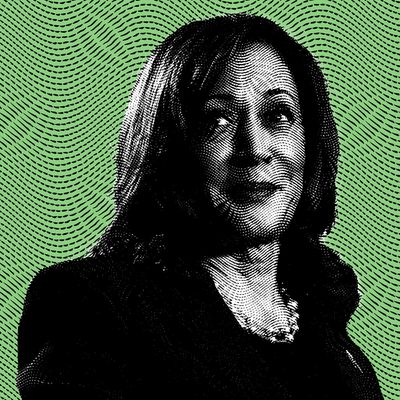
In March, I had a call with an influential former regulator in Washington, D.C., about the huge influx of crypto money that was already pouring in for the presidential election. It was a stunning change in the industry’s standing. Just a few months had passed since Sam Bankman-Fried was criminally convicted — which, in retrospect, turned out to have been roughly the end point of a “crypto winter,” a prolonged bear market when the industry bled money and clout. But since then, crypto had retrenched, hired better lobbyists, and become more sophisticated. A warning shot came last year when a super-PAC funded by venture-capital firm Andreessen Horowitz and Coinbase, the largest U.S. crypto exchange, spent about $10 million to help defeat Katie Porter in her Senate race. This ex-regulator warned me the race wouldn’t be the last we heard from the crypto lobby. “Money doesn’t buy experience. Experience does, and they’ve gotten a lot more experience. They’ve learned from the failures of 2022,” he told me. “It’s not just huge checks to be a shill anymore. Now it’s ‘We’re assembling a list of reasonable targets.’”
Since Kamala Harris became the presumptive Democratic nominee for president, the digital-asset world has very quickly found itself becoming more popular in Washington. Bitcoin is worth roughly $70,000, near all-time highs. Trump, after years of being a crypto skeptic, now loves it, telling a Nashville conference crowd this weekend that “it’s going to the moon. I want America to be the nation that leads the way,” then promising to fire Gary Gensler, the Securities and Exchange Commission chair who has antagonized the industry. More surprising, though, is that Harris has reportedly had aides meet with industry officials seeking to “reset” relations with some of the world’s biggest crypto exchanges. It’s unclear what, if anything, has been discussed between the Harris campaign and the industry, but crypto companies have been making the same demands for years: clearer rules specifically for the kinds of digital tokens that make up the crypto economy, rather than the same onerous, often expensive rules for Wall Street. (Some are demanding far more, including that the government essentially subsidize the market by buying up bitcoins as if they were oil). Is Harris likely to give in, or is this all just a play for money in a wild election year?
Crypto is a boom-and-bust industry. Since the most recent bust — which started in late 2021 and culminated in SBF’s collapse a year later — the obvious villains and goofs of the previous cycle have receded from view or been called out by regulators and courts. It’s not that anything about digital money has substantially changed, but the anything-goes atmosphere of its pandemic-era boom has been replaced with sober money managers like BlackRock and Franklin Templeton, which have made bitcoin and ethereum available for the typical 401(k). In this iteration of the crypto world, the market has climbed back up to about $2.5 trillion in value, from under $1 trillion following the implosion of FTX. Plenty of Democrats, including the influential congressional representatives Ritchie Torres of New York and Ro Khanna of California, have since come around to being vocal supporters. (There are still powerful Democrats who have been deeply skeptical of crypto for years, including Elizabeth Warren and Senate Banking Committee chair Sherrod Brown).
Harris has, at this point, made no outward promise to the industry. But her record is hardly going to endear her to crypto die-hards. The Biden administration’s position on the crypto industry has been essentially to regulate digital-asset companies as if they were traditional Wall Street firms. The crypto industry sees even the major positive developments for crypto, like approval of the bitcoin exchange-traded funds, largely as a position they were forced into by the courts.
There’s also plenty of reason to think that Harris, as a former prosecutor, may not want to get too close to the industry. Crypto has been notoriously used to facilitate drug and sex trafficking as well as to help launder money for countries like North Korea. “I’m sure it’s not sincere,” said John Reed Stark, a former head of enforcement at the Securities and Exchange Commission who recently testified before Congress on regulating digital currencies. “It’s a prosecutor’s nightmare. Bitcoin, especially, is a killer app for criminals. And that comes from all these government reports; it’s not just me hypothesizing.”
But in a broader political context, crypto’s big advantage is obvious: It makes its own money. In previous election cycles, this hasn’t always worked out so spectacularly. SBF, for instance, spent more than $50 million supporting losing candidates in 2022, prior to the collapse of his companies and before his name became associated with fraud. If he wasted money, so what? There was always another way to mint some more two or four years later.
Harris’s campaign is nine days old, lacks a running mate, and, to the extent that she has any policy positions, they are not available on her website. Maybe she’ll come out in a big way for crypto, promising the industry everything it has ever wanted. But will it matter? The past two crypto booms lasted two or three years, which is shorter than a presidential administration. Harris may be reaching out to the crypto industry simply “to put less daylight between them and President Trump,” Stark said — that is, to give die-hard crypto bros less of a reason to vote against her, rather than a real play for their votes.






























